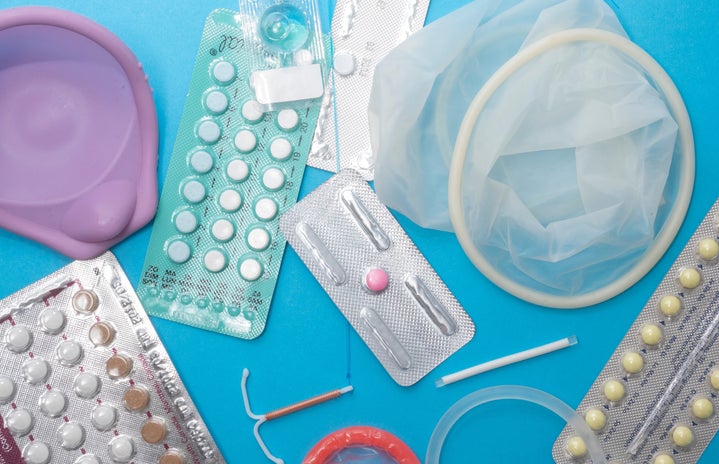I come from a very traditional Filipino and Catholic family in which sex is considered a taboo. I’ve never had “the talk” with my parents nor was I taught the types of contraceptives I could use.
My high school didn’t do a great job of teaching me about safe sex either, as I vaguely remember my chemistry teacher putting a condom on a banana. If I wanted contraceptives, I’d have to walk to the health center which was in the opposite direction of my classes. I was embarrassed to walk in there and have the health counselor ask me personal questions. Since I didn’t want her to judge my age and body, I asked Google my questions instead.
When I got to college, I downloaded Tinder as part of a dare, which is actually how I met my current boyfriend. At the time, I was having unprotected sex. I became paranoid about pregnancy every time I felt nauseous.
Since I didn’t have university insurance, I couldn’t get free birth control from the Tang Center nor did I want to call my doctor and ask for help. However, one of my floormates told me that she had extra birth control pills since she recently switched to a hormonal IUD. I bought them off her despite not having done any research about the side effects of taking a combination pill.

Within the first few months of taking it, I started having mood swings and developed cystic acne.
I freaked out. What was wrong with my skin? Am I using the wrong products? Why am I using my boyfriend as an emotional punching bag?
I didn’t feel like myself, and my first semester of college made me an emotional mess. My self-esteem lowered as red bumps started appearing on my face. When midterms came around, I found myself crying after exams and not taking care of my mental and physical health. I started going to the gym less as assignments piled up on my desk, and I felt like I didn’t have enough time in the day.
Eventually, my roommates noticed these changes and advised me to stop taking the pills. They told me to be abstinent for a while so that I wouldn’t have to worry about getting pregnant. As I stopped taking the pills for a month, I still took weekly pregnancy tests to ease my worries.
I didn’t want to be a teen mom nor disappoint my parents. I also didn’t want to drop out of school as a freshman taking care of a baby that I wasn’t ready to have. There were days when I felt miserable for keeping so many secrets about my sexual health from my parents. I wish our culture normalized sex more so that I could’ve cried to my mom and asked for her help.
Over winter break, I did my research on birth control types. I didn’t want to get a monthly shot since I was scared of needles, nor did I want an arm implant. I wanted something that was effective, convenient, and invisible to everyone’s eyes.
So what was left? The hormonal and copper IUDs (intrauterine devices).

Though I wanted to keep my regular period cycle, I heard horror stories about bleeding through three pads and having a heavy flow for ten days after inserting an IUD. But when my friend told me her experience with the Mirena IUD and how it helped clear her acne while also staying effective for up to seven years, I was immediately convinced.
Spring semester came and I booked my appointment at Planned Parenthood. I read about their program that provides women with no income access to free birth control. I was excited to get rid of my pills but nervous about the pain I’d endure from the procedure. Surprisingly, the IUD was very quick to insert, and I felt no discomfort walking out of the clinic.
It’s been more than a year since I switched to the Mirena, and my acne spots have started to fade away. Though my period is irregular and very light, switching out the pills was one of the best decisions I made during my freshman year. As I started getting back into my routine, I became a lot happier. Through my experience, I came to understand the importance of doing careful research before putting foreign things into one’s body.
Hopefully, in the future, I can reflect on these experiences and serve as my younger sister’s confidant. I want to teach her about sexual health and prevent her from feeling as lost and unsupported as I once did.
Disclaimer: These experiences are only my own. Please consult a healthcare professional about your contraceptive options.


